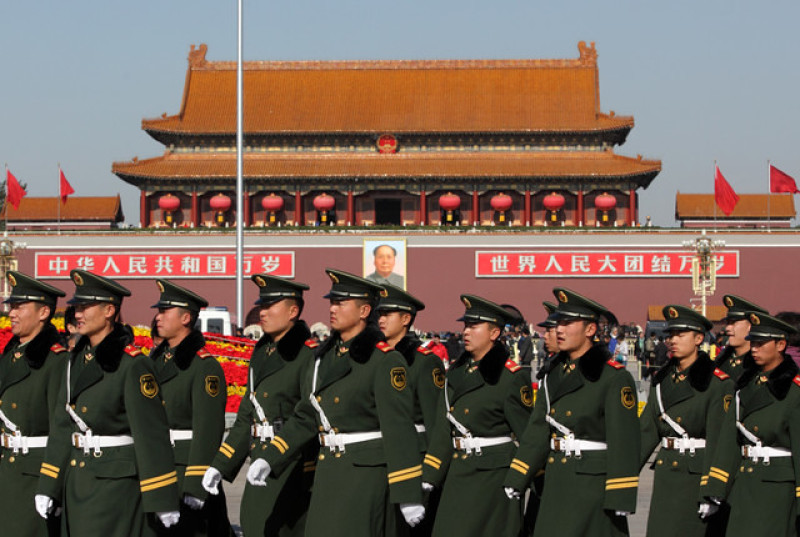
China recognized in 2005 that the world is "undergoing a military revolution characterized by electronics, computers, communications, and micro information technology." It was then when they realized that biotechnology is of utmost importance in the military domain as it has demonstrated "a character of aggression," meaning that it can take an offensive position in terms of warfare.
That is the argument presented in the paper titled "Ultramicro, Nonlethal, and Reversible Looking Ahead to Military Biotechnology," published by Xue-sen Yang and Colonel Guo Ji-wei of People's Liberation Army, China in 2005 available at the Army University Press.
The document mentions the Human Genome Project (HGP), an international scientific research project spearheaded by National Institutes of Health (NIH) director Francis Collins, who famously resigned from his post following revelations of the agency's ties to the coronavirus-research conducting Wuhan lab.
Colonel Guo believed that the Human Genome Project has "possibilities for military use" because it can "deepen the understanding of how to control and change a human being's battle effectiveness." He also wrote about "aggressive biotechnology," which can be used " as a means of defense and attack, and with further development, they probably will become new weapons systems."
Colonel Guo even predicted, "Biotechnological weapons can cause destruction that is both more powerful and more civilized than that caused by conventional killing methods like gunpowder or nuclear weapons."
According to the Gateway Pundit, Colonel Guo also described new bioweapons that use "destructive bacteria, viruses, and toxic living bodies obtained directly from the natural world," and are "difficult to control, and have irreversible effects."
China's eagerness to use biotechnology remains questionable, especially in the face of the COVID-19 pandemic. The paper published by Colonel Guo showed just how the communist regime wanted to design new forms of "biotechnological weapons" that would be "controllable" and "recoverable" by China alone because only they would have a vaccine or antidote for the specific disease.
Such viruses or illnesses would also be highly contagious but offer low lethality, thereby making it easy to deploy in "pre-war" conditions. Despite being developed in a lab, the bioweapons would appear to have "plausible deniability" and could easily be attributed to a disease of natural origin.
China's Third Military Medical University in Chongqing became the center of the People's Liberation Army's coronavirus research following the SARS pandemic of 2002. Coincidentally, Colonel Guo led this institution. Chinese whistleblower Dr. Li-Meng Yan sounded the alarm on how the COVID-19 virus originated in laboratories that were under the supervision of the People's Liberation Army of China, which used bat coronaviruses collected from Zhoushan and used as the viral "backbone" for genetic engineering.
To this day, China denies that the COVID-19 pandemic is a result of a laboratory leak. In fact, just this week, China unsurprisingly refused to grant the World Health Organization (WHO) access to the bat caves and wildlife farming near Wuhan, Breitbart reported. The WHO requested access to the area because they believe it is a "key step" in determining the origins of COVID-19, but that "Beijing has denied the requests."



























